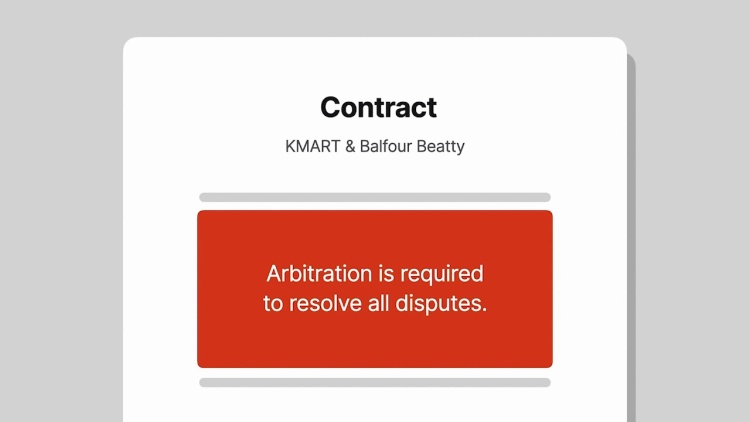KMART Corp. v. Balfour Beatty, Inc.
United States District Court for the District of the Virgin Islands
994 F. Supp. 634 (1998)
- Written by Jamie Milne, JD
Facts
Balfour Beatty, Inc. (BBI) (defendant) entered into a construction contract to design and build a shopping center for Tutu Park Ltd. (TPL). TPL planned to lease one of the shopping-center units to KMART Corporation (KMART) (plaintiff). Although KMART was not a party to the BBI-TPL contract, the contract specified that BBI’s construction schedules were to comply with KMART’s requirements, that the design drawings were to be submitted to KMART, and that warranties for BBI’s work were to be executed in KMART’s favor and provided directly to KMART. The contract also contained a provision requiring arbitration of any disputes. BBI completed the construction project. However, in September 1995, the shopping center’s roof was damaged by Hurricane Marilyn. KMART sued BBI in federal district court, alleging breach of contract and negligence. BBI moved to dismiss the suit, arguing that because KMART was not a party to the contract, KMART did not have a viable claim against BBI. KMART countered that it was an intended third-party beneficiary of the contract and thus had a right to bring its claim. BBI disputed KMART’s third-party-beneficiary status and also asserted an alternative argument that if KMART was a third-party beneficiary, then KMART’s action should be stayed and the dispute submitted to arbitration per the contract’s arbitration clause.
Rule of Law
Issue
Holding and Reasoning (Moore, C.J.)
What to do next…
Here's why 907,000 law students have relied on our case briefs:
- Written by law professors and practitioners, not other law students. 47,100 briefs, keyed to 996 casebooks. Top-notch customer support.
- The right amount of information, includes the facts, issues, rule of law, holding and reasoning, and any concurrences and dissents.
- Access in your classes, works on your mobile and tablet. Massive library of related video lessons and high quality multiple-choice questions.
- Easy to use, uniform format for every case brief. Written in plain English, not in legalese. Our briefs summarize and simplify; they don’t just repeat the court’s language.





